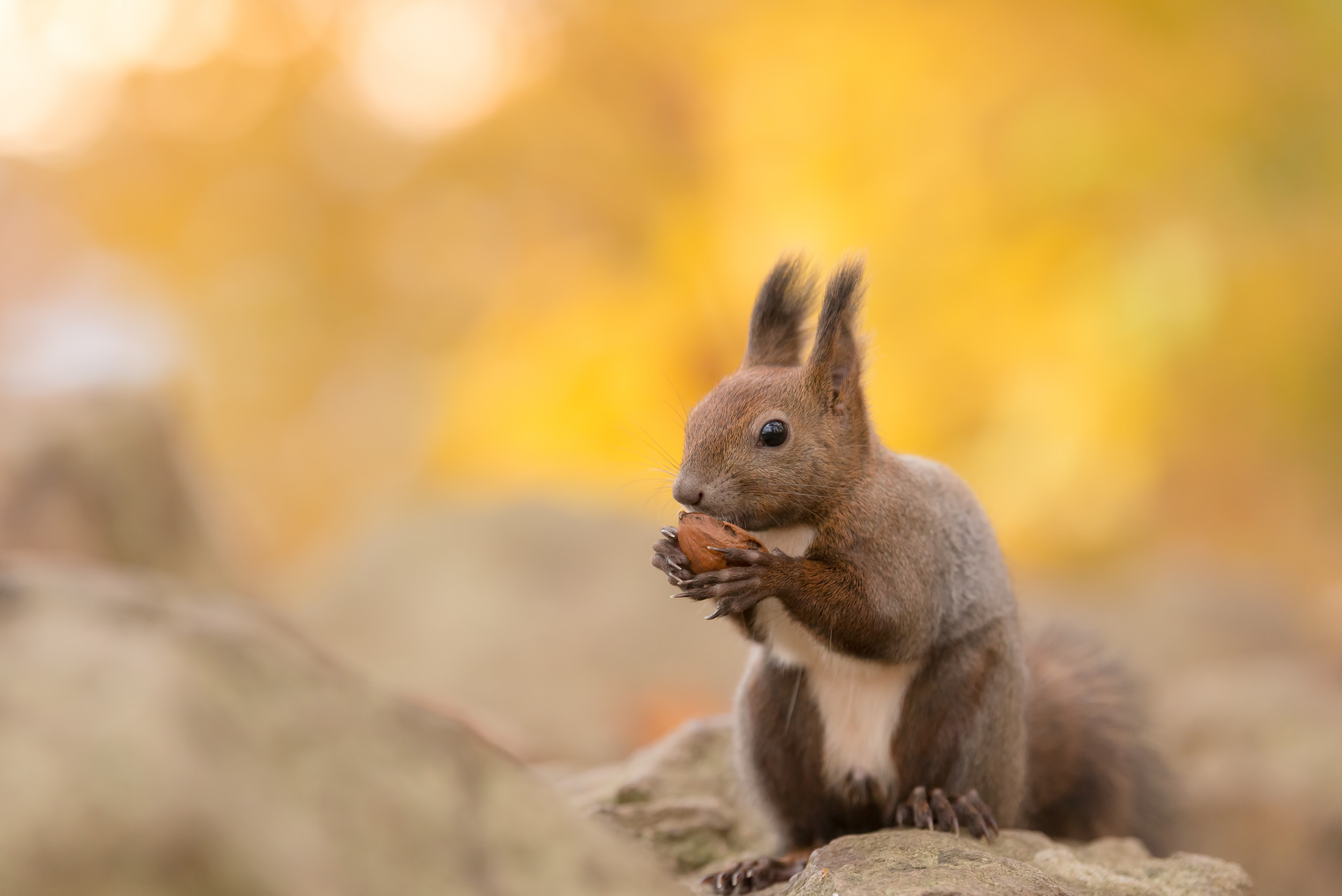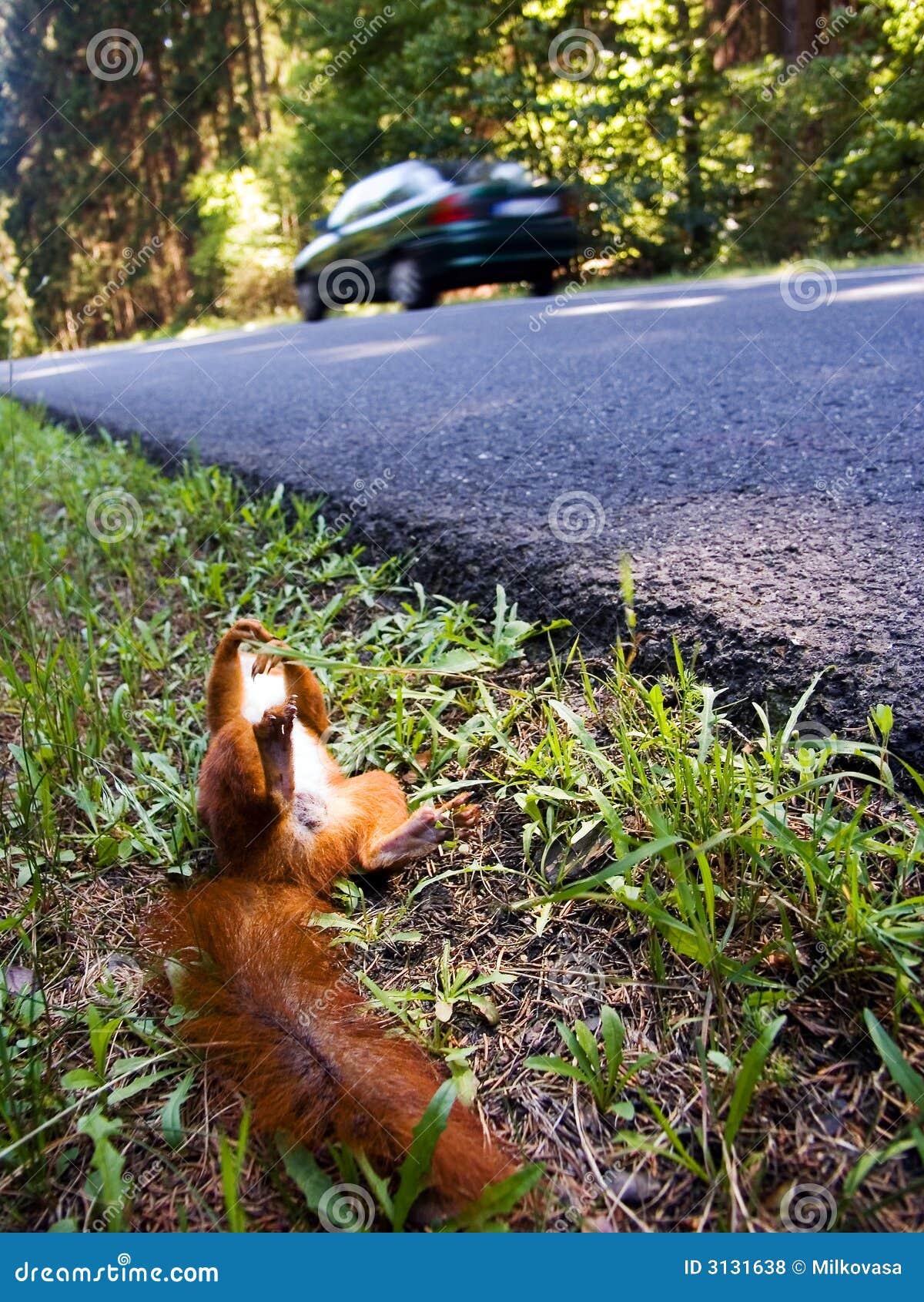Squirrel Death: The Untold Story Behind Nature's Silent Tragedy
Imagine this: You're strolling through the park, enjoying the crisp autumn air, when suddenly you spot something unusual. A tiny squirrel lies lifeless on the ground, surrounded by its scattered acorns. It's a moment that stops you in your tracks. Squirrel death, while not often discussed, is a reality of nature that deserves our attention. Why do these adorable creatures meet their end, and what does it mean for the ecosystem?
Now, I know what you're thinking—why are we talking about something so grim? Well, here's the deal: understanding squirrel death isn't just about morbid curiosity. It's about learning how these tiny critters fit into the bigger picture of life and death in the wild. Their demise can reveal a lot about the health of their environment and the challenges they face daily.
From predators to diseases, and even human interference, there's a lot more to squirrel death than meets the eye. So, grab your favorite snack (preferably not nuts, out of respect), and let's dive into this fascinating yet somber topic. By the end of this article, you'll have a deeper appreciation for these bushy-tailed creatures and the delicate balance of nature they're a part of.
- Cassandra Naud Unveiling The Life And Achievements Of A Rising Star
- Bob Marleys Dad The Untold Story Behind The Legends Father
Here's a quick guide to what we'll cover:
- Squirrel Biology: Understanding the Basics
- Top Predators That Hunt Squirrels
- Deadly Diseases Among Squirrels
- How Humans Contribute to Squirrel Death
- Conservation Efforts and What You Can Do
- Squirrel Death Statistics: The Numbers Speak
- Environmental Factors Affecting Survival
- Busting Myths About Squirrel Death
- Why Squirrel Death Matters
- Wrapping Up: The Bigger Picture
Squirrel Biology: Understanding the Basics
Before we dive into the nitty-gritty of squirrel death, let's take a moment to appreciate these amazing creatures. Squirrels, with their fluffy tails and quick reflexes, are more than just cute critters scampering around your backyard. They belong to the Sciuridae family, which includes over 285 species worldwide. Yep, that's a lot of squirrels!
Species Overview
There are three main types of squirrels: tree squirrels, ground squirrels, and flying squirrels. Each type has its own unique characteristics and survival strategies. For instance, tree squirrels are the acrobats of the forest, leaping from branch to branch with ease. Ground squirrels, on the other hand, prefer burrowing into the soil, creating complex tunnel systems. And flying squirrels? Well, they're basically nature's answer to Batman, gliding effortlessly through the air.
- Erinn Bartlett The Remarkable Journey Of An Influential Figure
- Miley Cyrus Nude The Truth Behind The Headlines And Sensationalism
Life Cycle
Now, let's talk about the life cycle of squirrels. Most squirrels live between 6 to 10 years in the wild, though some can live longer in captivity. They typically breed once or twice a year, depending on the species and environmental conditions. Baby squirrels, or kits, are born blind and helpless, relying entirely on their mother for the first few weeks of life. It's a tough start, but those that survive grow up to be the nimble creatures we know and love.
Here's a quick rundown of some key stats:
| Species | Average Lifespan | Primary Habitat |
|---|---|---|
| Gray Squirrel | 6-10 years | Forests, Urban Areas |
| Red Squirrel | 3-7 years | Coniferous Forests |
| Flying Squirrel | 5-10 years | Deciduous Forests |
Top Predators That Hunt Squirrels
Let's face it—life in the wild is tough, especially if you're a squirrel. These little critters have their fair share of predators, and it's not just the big cats or bears you'd expect. In fact, some of the most dangerous predators are much smaller and sneakier than you might think.
Who's on the Hunt?
Among the top predators of squirrels are birds of prey like hawks, owls, and falcons. These skilled hunters have keen eyesight and lightning-fast reflexes, making them a formidable threat. But it doesn't stop there. Mammalian predators like foxes, raccoons, and snakes also target squirrels, often ambushing them when they least expect it.
Defense Mechanisms
Squirrels aren't completely defenseless, though. They've developed some pretty nifty tricks to evade predators. For example, tree squirrels can leap incredible distances between branches, making it hard for ground-based hunters to catch them. Ground squirrels, on the other hand, rely on their burrows for safety, retreating underground at the first sign of danger. And flying squirrels? Well, their gliding ability is their secret weapon, allowing them to escape predators by taking to the skies.
Still, even the best defenses aren't foolproof. Squirrel death due to predation remains a significant factor in their mortality rates.
Deadly Diseases Among Squirrels
While predators get a lot of attention, diseases can be just as deadly for squirrels. From viral infections to parasitic infestations, these tiny creatures face a host of health challenges that can lead to their demise.
Common Diseases
One of the most well-known diseases affecting squirrels is squirrel pox, a viral infection that can be fatal. This disease, transmitted through bites or contact with infected animals, causes lesions and ulcers on the skin. Another threat is leptospirosis, a bacterial infection that affects the kidneys and liver. Both diseases can spread rapidly in squirrel populations, leading to significant mortality rates.
Parasites Galore
Parasites also play a role in squirrel death. Fleas, ticks, and mites can weaken squirrels, making them more susceptible to other illnesses. Some parasites, like the brainworm, can cause neurological damage, leading to disorientation and death. It's a grim reality, but one that highlights the importance of healthy ecosystems in maintaining squirrel populations.
How Humans Contribute to Squirrel Death
As much as we love squirrels, humans have inadvertently contributed to their deaths in various ways. From habitat destruction to road accidents, our actions have a significant impact on these creatures.
Habitat Loss
Urbanization and deforestation are major threats to squirrel habitats. As forests are cleared for development, squirrels lose their homes and food sources. This forces them to move into less suitable areas, where they face increased competition and predation. It's a cycle that's hard to break, but awareness and conservation efforts can make a difference.
Road Accidents
Another common cause of squirrel death is road accidents. These critters, with their quick movements and unpredictable behavior, often find themselves in the path of speeding vehicles. It's a sad reality, but one that can be mitigated with better urban planning and wildlife crossings.
Conservation Efforts and What You Can Do
Thankfully, there are people and organizations dedicated to protecting squirrels and their habitats. From reforestation projects to wildlife sanctuaries, conservation efforts are making a positive impact.
What Can You Do?
You don't have to be a wildlife expert to help squirrels. Simple actions like planting native trees, avoiding pesticides, and creating squirrel-friendly environments in your backyard can make a big difference. You can also support local conservation groups and spread awareness about the importance of protecting these adorable creatures.
Squirrel Death Statistics: The Numbers Speak
Numbers don't lie, and when it comes to squirrel death, the statistics tell a compelling story. According to studies, predation accounts for about 40% of squirrel deaths, while diseases and human-related factors make up the rest. These figures highlight the complex web of factors affecting squirrel populations.
Key Findings
- Predation is the leading cause of death among squirrels.
- Diseases like squirrel pox and leptospirosis are responsible for significant mortality rates.
- Road accidents contribute to around 10% of squirrel deaths in urban areas.
Environmental Factors Affecting Survival
The environment plays a crucial role in squirrel survival. Factors like climate change, pollution, and habitat fragmentation can all impact these creatures' ability to thrive.
Climate Change
Rising temperatures and changing weather patterns can affect squirrel behavior and food availability. For instance, warmer winters can lead to reduced snow cover, making it harder for squirrels to find food. It's a complex issue, but one that requires our attention.
Pollution
Pollution, from air to water, can also harm squirrel populations. Contaminated environments can lead to health issues and reduced reproductive success, further threatening these creatures' survival.
Busting Myths About Squirrel Death
There are plenty of misconceptions about squirrel death, and it's time to set the record straight. For example, some people believe that squirrels hibernate during the winter, making them less vulnerable to predators. In reality, most squirrels don't hibernate and remain active year-round, facing the same dangers as in warmer months.
Separating Fact from Fiction
- Myth: Squirrels are immune to diseases. Fact: Squirrels are susceptible to various illnesses, just like any other animal.
- Myth: Squirrels can easily adapt to urban environments. Fact: While some squirrels thrive in cities, many face challenges due to habitat loss and human interference.
Why Squirrel Death Matters
At first glance, squirrel death might seem like a minor issue in the grand scheme of things. But when you consider the role these creatures play in ecosystems, it becomes clear that their survival—or lack thereof—has far-reaching consequences.
Ecosystem Balance
Squirrels are seed dispersers, playing a crucial role in reforestation and maintaining plant diversity. Their deaths can disrupt these processes, affecting the entire ecosystem. Additionally, squirrels serve as prey for many predators, making them an integral part of the food chain.
Wrapping Up: The Bigger Picture
So, there you have it—the untold story of squirrel death. While it's a somber topic, understanding the challenges these creatures face can inspire us to take action. Whether it's through conservation efforts, spreading awareness, or simply appreciating these amazing animals, we all have a part to play in protecting them.
I encourage you to share this article with friends and family, start a conversation, and maybe even get involved in local conservation projects. After all, every little bit helps. And who knows? You might just save a squirrel's life in the process.
Until next time, keep exploring the wonders of the natural world—one bushy tail at a time!



Detail Author:
- Name : Maximo Huels
- Username : nweissnat
- Email : bianka79@hotmail.com
- Birthdate : 1995-12-07
- Address : 705 Sipes Plaza Apt. 890 West Onie, NE 81106-8303
- Phone : 678-531-4858
- Company : Bergstrom, Rolfson and Conroy
- Job : Occupational Health Safety Technician
- Bio : Rerum repudiandae vitae deserunt sequi explicabo. Consequatur quam qui et cupiditate ipsam natus. Ullam et et sit harum quae consequatur.
Socials
twitter:
- url : https://twitter.com/vito_xx
- username : vito_xx
- bio : Aut deserunt ut aliquam qui sit accusamus voluptatum mollitia. Quaerat odio voluptas praesentium beatae ut est.
- followers : 6583
- following : 2696
facebook:
- url : https://facebook.com/moore1982
- username : moore1982
- bio : Esse libero ut est quam aut dolorem.
- followers : 320
- following : 221